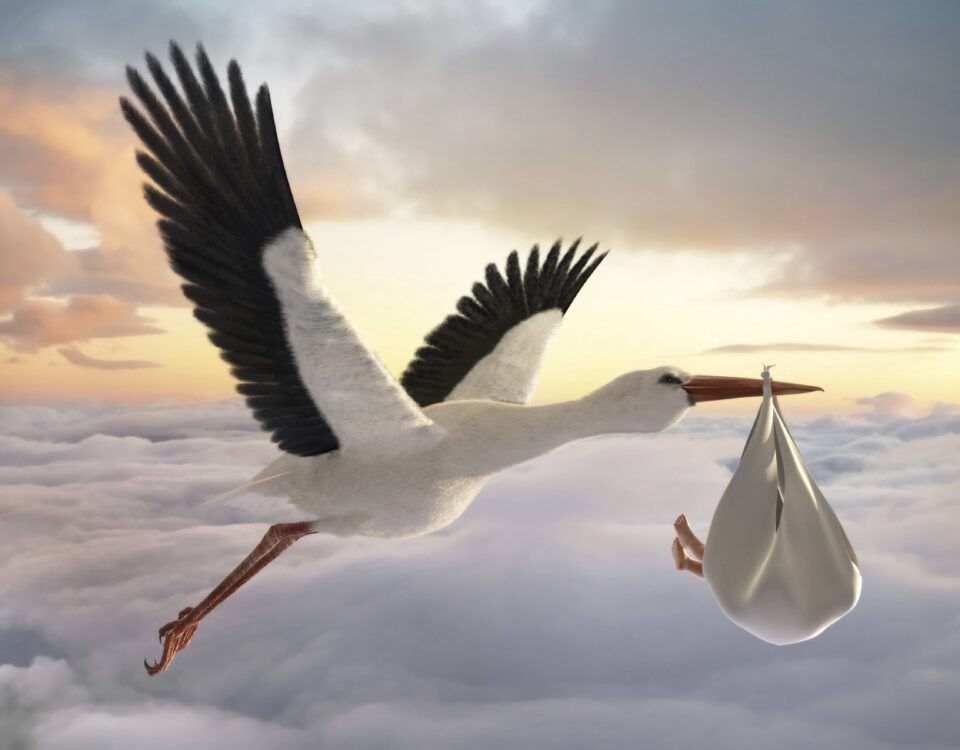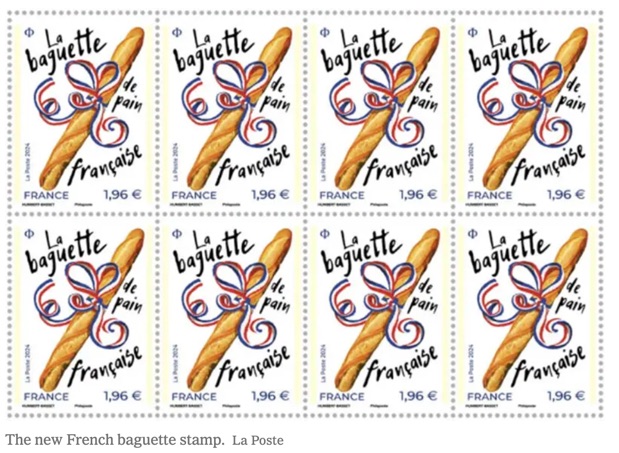
Global Supply Chain Disruptions
April 13, 2022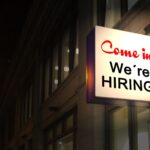
Why Job Switchers Love Labor Markets
April 15, 2022After an almost universal decline, global economic growth rebounded in 2021. Now though, with inflation climbing, we can ask about a soft landing.
Global Economic Growth
Showing the past, present, and future, the following graphic covers 2019 to 2023.
You can see that everyone except China had the 2020 dip but the U.K. was hit the hardest. Then, looking ahead, the two countries with a dismal forecast for 2022 are Russia and Brazil. The reason for Russia is its Ukraine invasion and economic sanctions while Brazil’s political turmoil is bruising its economy.
However, the big message from PIIE (Peterson Institute for International Economics), based on their 2022 and 2023 forecasts, is slowing world growth:
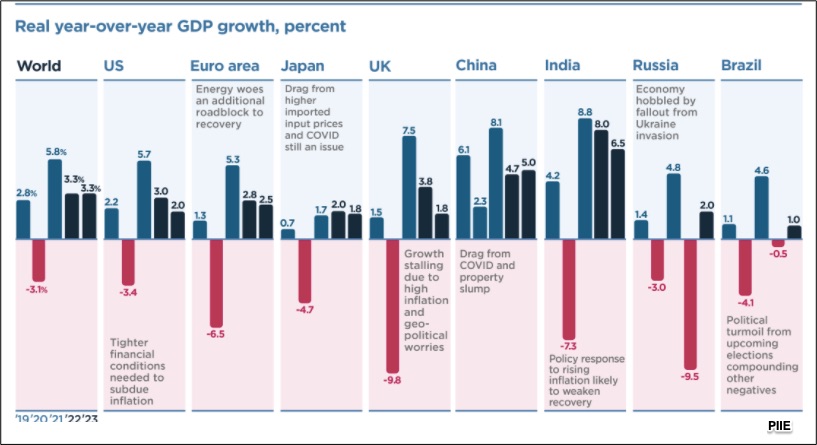
The second big message is inflation.
Our Bottom Line: A Soft Landing
Instead of a soft landing, the elevated interest rates that bring inflation down could make it rather bumpy or even turbulent. Statistically, the ideal would be approximately 4.5 percent unemployment and inflation descending to 4 percent and then 3 percent. The challenge is how to get there.
Looking back to the 1970s, the U.S. landing was not quite soft. These four graphs tell the story.
To fight his battle against inflation, by the end of 1980, Federal Reserve Chair Paul Volcker brought the prime rate (for a bank’s best customers) up to a record 21.5 percent:
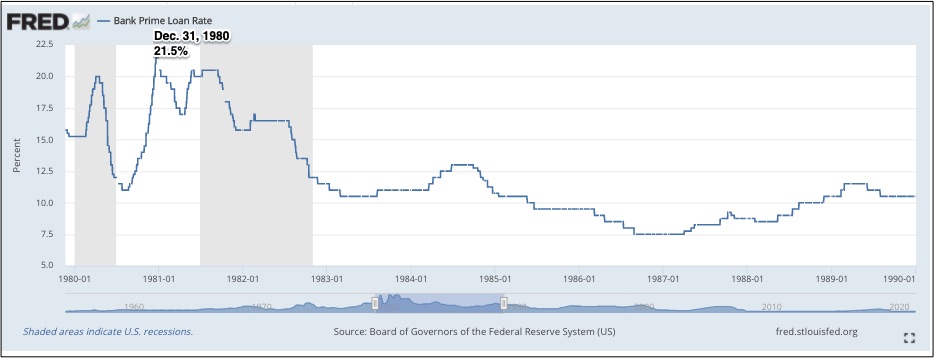
Responding, inflation steadily dipped from a whopping 13.54 percent to 3.21 percent. Still not the 2 percent, ideal, it was substantially lower:
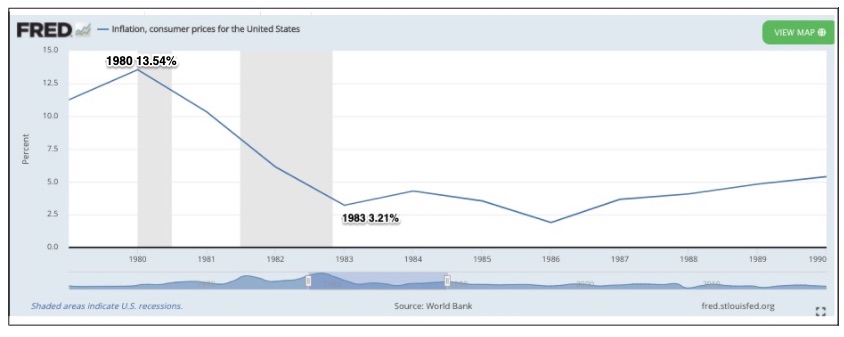
And growth rebounded:
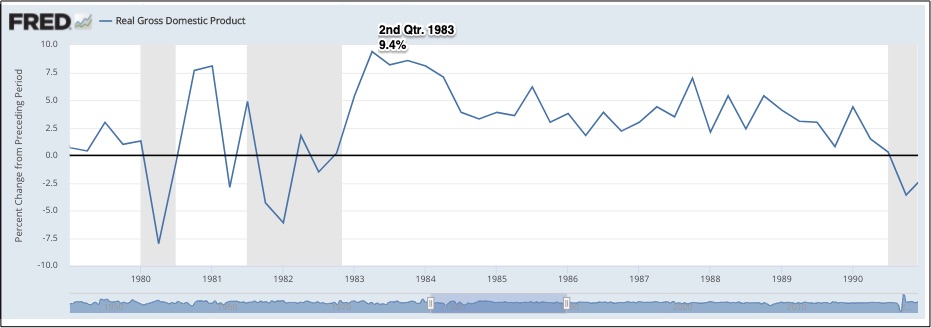
But the tradeoff was an unemployment rate that went way up beyond 10 percent:
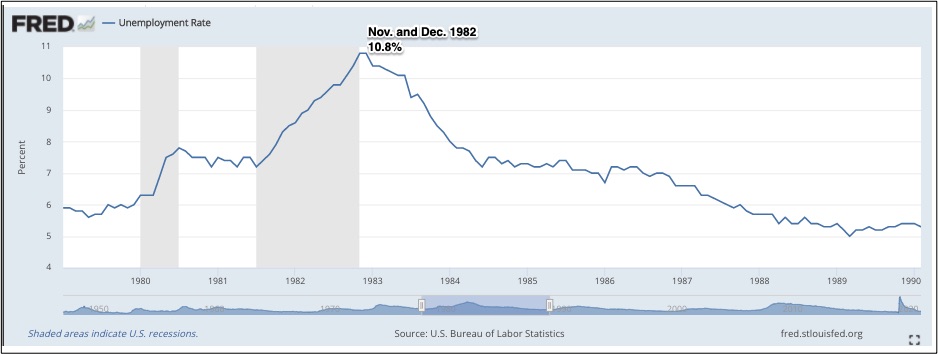
And the turbulent landing that we hope to avoid.
My sources and more: PIIE is always my go-to website for international trade. Now, with growth on our minds, they tell us what we need to know globally with a complement from a Federal Reserve article adding some U.S. inflation history. And finally, the St. Louis Fed’s FRED is there for almost any statistic we could want.
![econlifelogotrademarkedwebsitelogo[1]](/wp-content/uploads/2024/05/econlifelogotrademarkedwebsitelogo1.png#100878)



